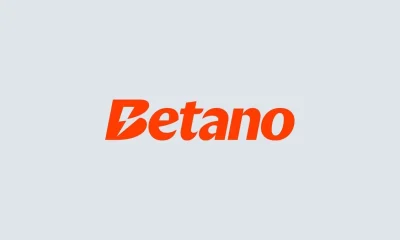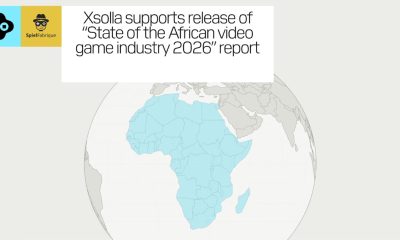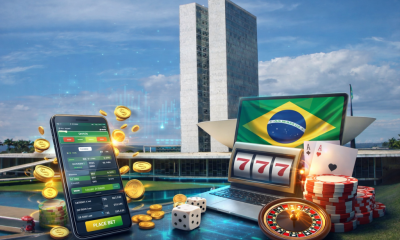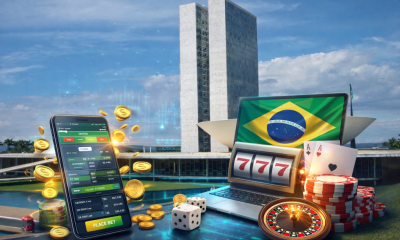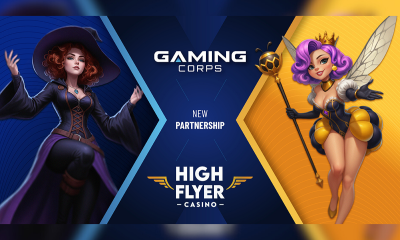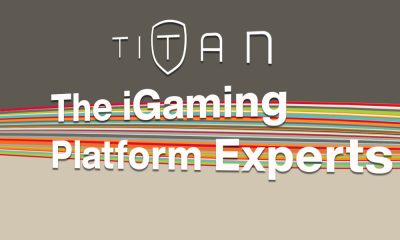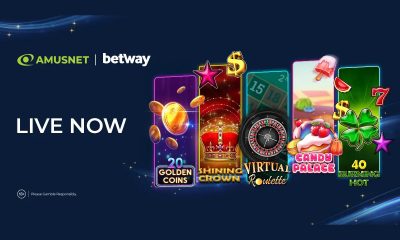Gaming
Super League Gaming Acquires Metaverse Ad Platform Bloxbiz
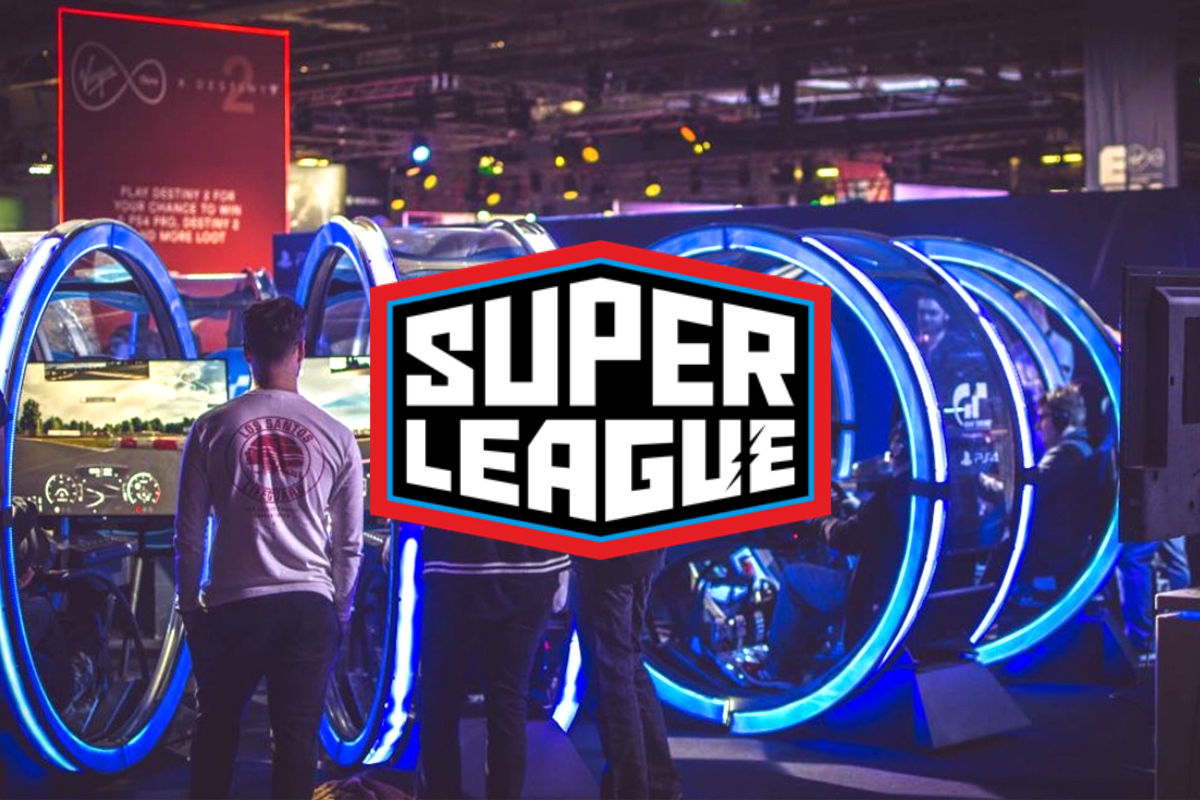
Super League Gaming, a global leader in connecting consumer brands with video gamers of all ages in-stream, in-game, and in-content through creator communities, proprietary platforms, and esports properties, announced today the acquisition of Bloxbiz, a dynamic ad platform designed specifically for metaverse environments. Launched in 2020, Bloxbiz’s initial deployment enables brands to advertise across popular Roblox game titles and helps Roblox creators with monetization and game analytics
Bloxbiz’s powerful advertising platform reaches more than 25 million monthly active Roblox users across a collection of more than 75 curated, brand-safe games. In-game ads take the form of creative billboards that complement the gaming experience, allowing for natural discovery without interrupting gameplay. The ads are measured through Bloxbiz’s advanced technology, which verifies viewability in a 3D space and provides aggregated audience geographic, language, and device data.
Super League and the founders of Bloxbiz, Sam Drozdov and Ben Khakshoor, established a working partnership earlier this year, with Super League running multiple Roblox campaigns with top tier entertainment and streaming brands seeking fresh ways to connect with young audiences. Witnessing the success and broad advertiser appeal of the programs, the companies determined a unified offering to the market would accelerate their collective growth objectives.
“We believe the acquisition of Bloxbiz is game-changing for Super League,” says Ann Hand, Chairman and CEO of Super League. “This deal allows us to execute on our plans to boldly extend our reach in the metaverse, something we hope will appeal to our investors and the broader market. We are thrilled to have the leader of in-game advertising on board to reach the vast audience that exists within Roblox.”
“There are exactly three reliable ways for brands to initiate an authentic relationship with gamers in today’s media landscape – in-game, in-stream, and in-content,” says Matt Edelman, Chief Commercial Officer, Super League Gaming. “Our acquisition of Bloxbiz puts Super League in an enviable position within the in-game advertising ecosystem. We can put marketers in front of a perennially elusive demographic audience at scale, while generating deserving revenue for enterprising game creators working hard to turn their passion into their livelihood.”
This strategic acquisition of Bloxbiz adds to Super League’s already existing and rapidly expanding presence in the metaverse, specifically its Minecraft audience through three owned and operated properties:
- Minehut, the largest Minecraft Java Edition community server host in North America, now with more than 4 million registered users.
- Mineville and Pixel Paradise, two of seven official Minecraft servers accessible through Minecraft’s Bedrock Edition on Xbox, Playstation, iOS, and Android, which reach more than 4.5 million players per month and entertained more than 22 million players in 2020.
“The more time we spent with the Super League team, the more we realized being a part of what they are building is the most energizing way to advance our vision for Bloxbiz,” said Sam Drozdov, Co-Founder and now Director of Bloxbiz at Super League. “Metaverse platforms are giving game designers and developers an increasingly important role within the creator economy. Bloxbiz was founded to help them generate revenue from brand partnerships based on the audiences they command.”
“Roblox is just the first stop on our mission to support creators across metaverse environments,” added Ben Khakshoor, Bloxbiz co-founder and now Technical Director of Bloxbiz at Super League. “Super League has momentum and trust as a company that understands this space, which makes combining forces so exciting.”
Powered by WPeMatico
CEO of GGBET UA Serhii Mishchenko
GGBET UA kicks off the “Keep it GG” promotional campaign

A leading gaming brand in Ukraine has launched a collection of ads featuring the tagline “Keep it GG” as part of an extensive communications initiative. The videos are currently being broadcast on Ukrainian TV, online platforms, and the brand’s social media accounts.
“GG” (Good Game) started in video game culture, yet its significance has far surpassed the literal meaning of “well played.” Currently, it symbolizes a worldwide sign of honor and gratitude for the feelings exchanged following a match, no matter the outcome. This concept served as the basis for GGBET UA’s latest marketing campaign. The video series embodies a unique GG atmosphere: rather than using a conventional voiceover, it incorporates complete audio tracks; the narrative features both literal and metaphorical allusions to sports and esports terms, alongside in-game and casino aspects; and prominent Ukrainian footballers are among the main characters.
“Every game, every match, every tournament is a moment that brings people together. For us, it’s important that every interaction with GGBET gives users that good game feeling — an experience that outlives the result and leaves vivid emotions behind, just like after watching a match,” comments CEO of GGBET UA, Serhii Mishchenko.
Going beyond the traditional view of GG also signifies a more profound implication — the brand’s strategic focus. The international brand, which has concentrated on esports for several years and attained significant success in esports betting and collaborations, is now adopting best practices to enhance traditional sports in regional markets. GGBET UA showcases a wider strategy for Good Game via collaborations (FC Dynamo Kyiv, FC Polissya, and the Ukrainian Basketball Federation), by organizing its own events and special projects, including initiatives that blend sports with esports, like the Match of LeGGends: Derby showmatch on the server featuring esports athletes and football players.
The brand’s creative team collaborated with a Ukrainian advertising agency and a Ukrainian production company to develop the commercials. GGBET UA made this choice to assist the local creative sector amid the war.
The post GGBET UA kicks off the “Keep it GG” promotional campaign appeared first on Eastern European Gaming | Global iGaming & Tech Intelligence Hub.
Christer Fahlstedt
Paf has halved its loss limit since 2018
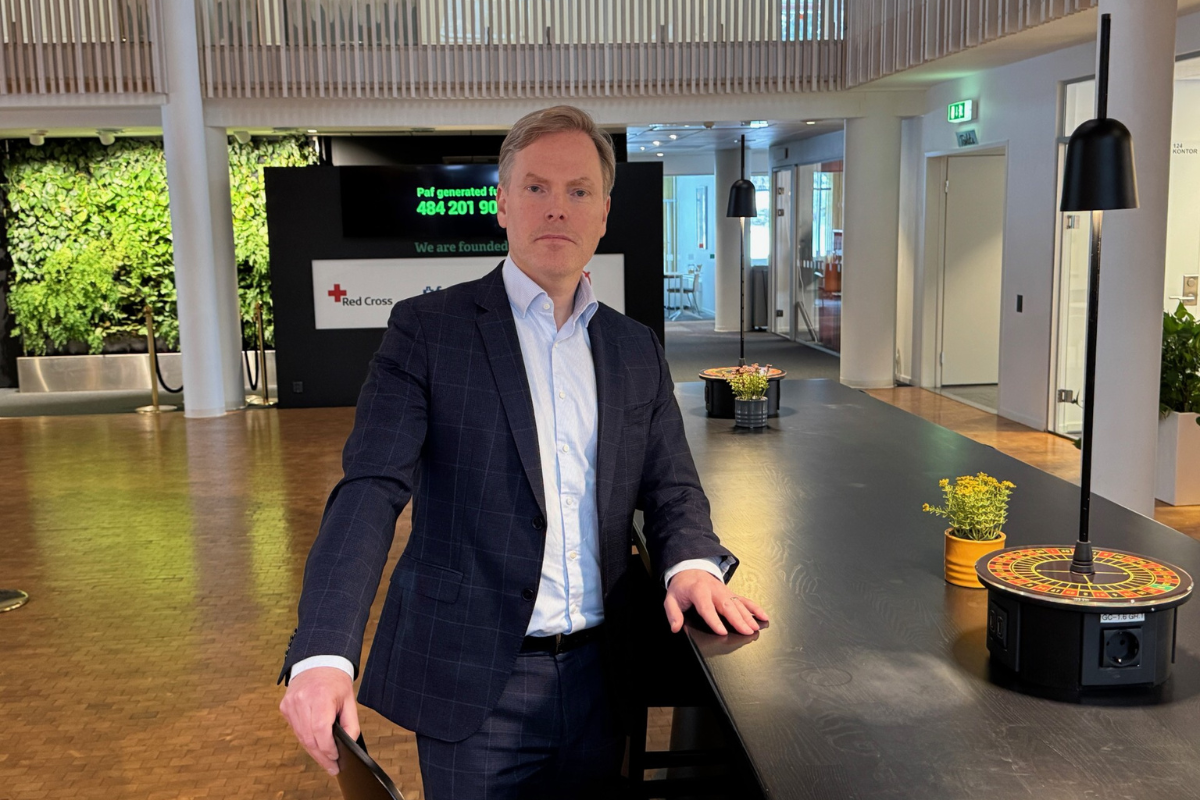
Nordic gaming operator Paf is taking another decisive step toward responsible gambling by lowering its mandatory annual loss limit for all customers from €16,000 to €15,000. The move is part of a long-term strategy focused on sustainability, player protection, and ethical revenue growth.
With this latest reduction, Paf has now cut its original loss limit—first introduced in 2018 at €30,000—by 50%. The mandatory cap applies across all gaming categories and to every platform operated by the company.
“We are extremely proud that through concrete actions and long-term investments in responsible gaming, we have now halved the first loss limit we introduced in 2018,” said Christer Fahlstedt, CEO of Paf. “It clearly demonstrates that we are serious about our ambition to be a sustainable entertainment company.”
Long-term ambition: €8,000 annual loss limit
The new €15,000 threshold represents another step toward Paf’s previously stated long-term goal of lowering the annual loss limit to €8,000 per player.
“We have been transparent about our ambition to lead the development toward a healthier gaming market,” Fahlstedt added. “Unlike many operators, we are prepared to say no to revenue that comes from unsustainable gaming. However, this transition must happen gradually to ensure long-term stability in a highly competitive market.”
High-intensity player segments phased out
As part of the reduction, Paf will continue to reshape its customer segmentation model. Revenue from the so-called orange segment—players with annual losses between €15,000 and €30,000—will be phased out entirely over time.
Paf has already eliminated revenue from its red segment, which previously consisted of customers losing more than €30,000 annually. The latest changes further reinforce the company’s shift away from high-intensity gambling behavior toward more sustainable play levels.
“Removing the orange segment is a deliberate and important decision,” said Daniela Johansson, Deputy CEO and Chief Responsibility Officer at Paf. “It clearly signals that we do not want revenue that isn’t sustainable over time—especially when our mission is to create long-term benefits for society.”
Call for shared limits across the industry
In addition to mandatory loss limits, Paf customers can set their own voluntary lower limits. While these safeguards have proven effective in curbing harmful behavior, Paf emphasizes that broader industry action is needed.
“Loss limits have a real and measurable impact on player behavior and can stop problems before they escalate,” Fahlstedt said. “But customers can easily switch operators. That’s why common national deposit limits are essential, and why unlicensed gambling must be addressed.”
Paf was the first international gaming operator to introduce mandatory loss limits, and the company continues to advocate for stronger, shared responsibility standards across regulated markets.
The post Paf has halved its loss limit since 2018 appeared first on Eastern European Gaming | Global iGaming & Tech Intelligence Hub.
Circus Jackpot
TaDa Gaming Releases Circus Jackpot
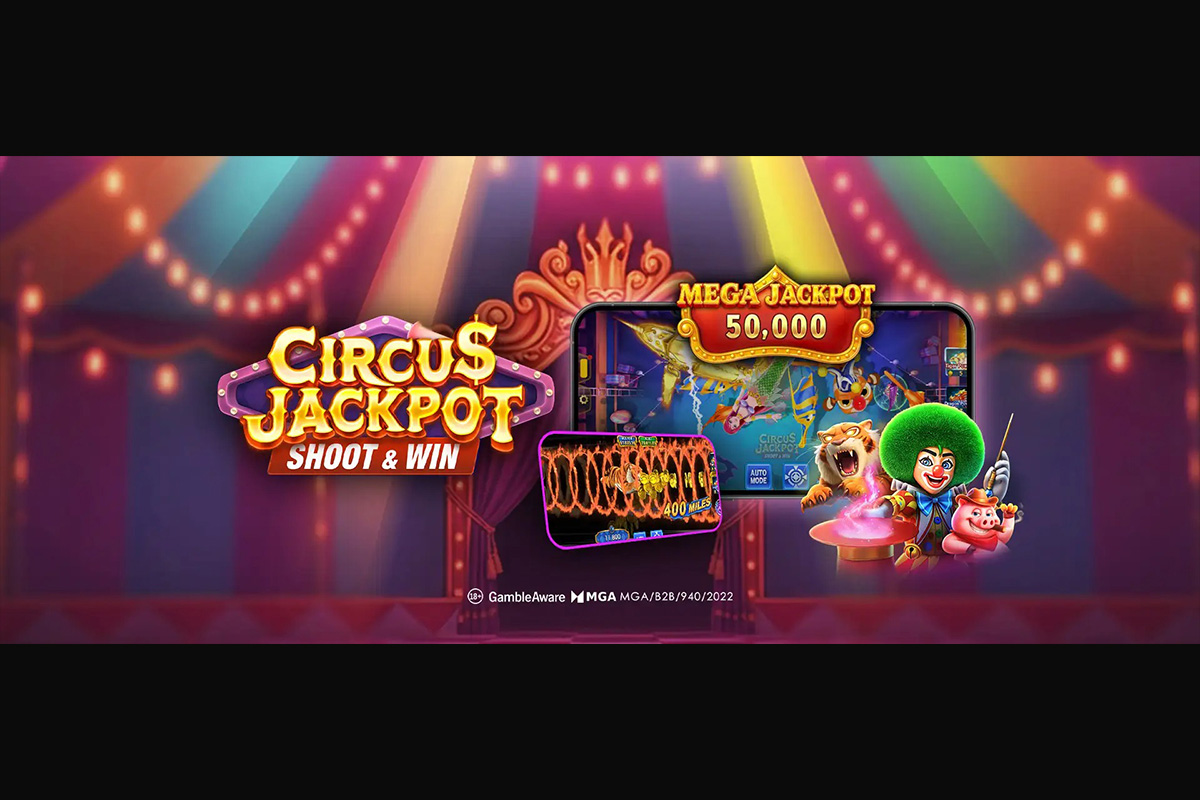
Award-winning TaDa Gaming has built a name for delivering differentiation for operator platforms with its unique fish-shooting games. Combining the thrill of cinematic video animations with recognisable casino mechanics, these multiplayer games offer a new way to play and win with skill-influenced challenges and in-game progression.
Latest release, Circus Jackpot, takes the action into the Big Top Tent for a fantastical procession of characters, creatures and Awakening Bosses, each one bringing multipliers and triggering bonus games when players successfully take them down.
And this is no ordinary circus: shoals of lower value fish swirl around the tent to bring easy win multipliers from 2x – 20x while Giant Medium Fish raise the game to 80x and the Golden Killer Whale offers up to 100x.
A colony of crabs including Bomb, Drill, Hammer and Wheel versions can each deliver a unique effect when triggered. The Hammer Crab can unleash the power of thunder and the Wheel Crab triggers a bonus roulette game for up to 800x; while the Bomb Crab will detonate a chain bomb attack and the Drill Crab will penetrate through the crowd for maximum impact on explosion.
Players can be strategic on timing blasts. Capturing the Lightning Chain Fish will trigger the Lightning Chain and take out fish, one by one; while the Vortex Fish will create a sea of swirling water that sucks all the surrounding creatures into it.
With up to four players in Circus Jackpot at any time, the first shots are fired from Rocket Cannon positions. Each shot builds up the Free Deep Sea Whirlpool weapon which can be strategically used for full screen wipeouts; while a random Flame Bomb can also trigger, adding to the excitement and win potential.
Weaponry is further enhanced by the Tiger Power and Dragon Power uplifts, designed to take down the Awakening Bosses. These are the Mermaid (100x – 1200x); the Ghost Ship (100x – 1200x); the Thunder Dragon with up to 1980x; and the Wild Hog(60x – 2500x).
Capture any of these Bosses and watch their effects from performances and collisions to raise the multiplier, to the Wild Hog bonus game of Tug of War, where the generous piggy will give 60x – 200x to losers while winners can pull 220x – 2500x.
New characters to appear in Circus Jackpot include the Cash Clown and King Tiger. Targeting the unicyclist Cash Clown will build the multiplier to 350x while a successful shot will make the Clown spin his magic hat in a superb bonus game animation and pull out Coins (10x), White Rabbits(20x – 150x) or the King Tiger Boss, who brings the biggest game multiplier of all.
King Tiger is the star of the show. His party piece is to jump through the Consecutive Fire Rings and Colour Fire Rings at high speed, increasing the multiplier as he soars through the hoops.
Each mile covered is shown on the screen in a spectacular animation. And if King Tiger Boss can clear all the hoops in the challenge, he’ll provide up to a staggering 4800x win potential.
With Mega, Major and Mini jackpots also to be won, this is the new shoot and win game that will have players glued to the screen.
A straightforward UI holds all the controls, with added features for Aim to target specific creatures and Auto to create target lists, giving players strategic agency. Simple rules and descriptions of the characters and their effects make onboarding easier and enable players to get straight into the action with Circus Jackpot.
Sean Liu, Director of Product Management, TaDa Gaming, said: “TaDa’s glocalisation skills enhance our standing as the No.1 provider for fish-shooting. Circus Jackpot takes the highlights from the fish-shooting genre and seamlessly builds in new Bosses and features to deliver big potential in an expertly localised adventure to suit all player levels.”
Available in over 15 languages with 100+ currency choices, Circus Jackpot is available to play from 10th February 2026.
The post TaDa Gaming Releases Circus Jackpot appeared first on Eastern European Gaming | Global iGaming & Tech Intelligence Hub.
-

 Accra7 days ago
Accra7 days agoKaizen Gaming Launches Betano in Ghana — 20th Regulated Market & Responsible GameTech Expansion
-

 Africa7 days ago
Africa7 days agoState of the African Video Game Industry 2026: Xsolla Backs SpielFabrique’s Definitive Market Report
-

 Edvardas Sadovskis CPO at ICONIC216 days ago
Edvardas Sadovskis CPO at ICONIC216 days agoICONIC21 Reimagines Myth: Medusa vs. Perseus — The Stone Duel
-

 Brasil7 days ago
Brasil7 days agoBrasil en foco: Regulación, mercado y presión fiscal moldean la nueva fase del iGaming
-

 Brazil7 days ago
Brazil7 days agoBrazil: Regulation, market dynamics and tax pressure shape a new phase for iGaming
-

 Canada6 days ago
Canada6 days agoGaming Corps takes flight in Ontario with High Flyer Casino partnership
-

 CRM6 days ago
CRM6 days agoTitan 3.0 Launch Marks Finnplay’s Biggest Platform Overhaul
-

 Africa6 days ago
Africa6 days agoAmusnet Announces Strategic Partnership with Betway




